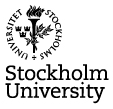Prof. Orions on Ecological Indicators
Prof. Gordon Orions will on March 24, 2003, hold the seminar "Ecological Indicators. The Value of Small Numbers".
Guided by the hypothesis that the value of any ecological indicator is inversely proportional to the number of indicators with which it competes, the U. S. National Research Council and the John Heinz Center have struggled to craft a few indicators that capture components of environmental status and trends that might have the ability to influence public policy.
Will these efforts succeed? What needs to be done to achieve success?
About Professor Orions
Professor Orians has been chair of a National Academy of Sciences committee that produced a report on “Ecological Indicators for the Nation".
Gordon H. Orions is professor emeritus of Biology at the University of Washington in Seattle. He received a Ph.D. in zoology in 1960 from the University of California, Berkeley.
From 1976 to 1986 he was director of the Institute of Environmental Studies at the University of Washington. Prof. Orians´ research areas have been several during the years; Behavioral Ecology, Population Dynamics, Plant-Herbivore Interactions, Community Ecology, Human Ecology, and Plant Ecology.
He is a member of the National Academy of Sciences. His major retirement project is writing a book that will attempt to synthesize ecological concepts at all levels, ranging from behavioral ecology to ecosystems.
He is also writing a book on environmental esthetics, using habitat selection theory as a conceptual framework for analyzing and interpreting human responses to natural and modified environments.
Readings related to the seminar
The Heinz report "The State of the Nation´s Ecosystems" can be downloaded.
The "Ecological Indicators for the Nation" from the National Academy of Sciences can be read online.
Time and place
Place: Beijer Hall, the Royal Swedish Academy of Sciences Lilla Frescativägen 4, Stockholm
Vacancies | Contact | Environmental policy | Cookies
Stockholm Resilience Centre
Stockholm University, Kräftriket 2B | Phone: +46 8 674 70 70 | info@stockholmresilience.su.se
Organisation number: 202100-3062 | VAT No: SE202100306201


